How to Handle Conflict in Cooperative Games: Tips for Better Teamwork
21 February 2025
Cooperative games are a blast, aren’t they? There’s something magical about teaming up with friends, family, or even strangers to overcome challenges together. Whether it’s defeating a dragon, escaping a haunted mansion, or surviving a zombie apocalypse, cooperative games allow us to share victories and laugh off defeats. But, let’s be real—sometimes, the magic fades, and conflict sneaks in like an uninvited NPC.
If you've ever found yourself arguing over strategy or pointing fingers when things go sideways, you’re not alone. Conflict in cooperative games is normal. Humans are emotional creatures, and when stakes are high (or when someone's hogging all the loot), tempers can flare. But don’t worry! The good news is that conflict doesn’t have to ruin the fun. In fact, it can actually strengthen your teamwork if handled right.
So, how do you keep the peace and make sure everyone has a good time? Here are some tips to handle conflict in cooperative games and boost your group’s teamwork skills!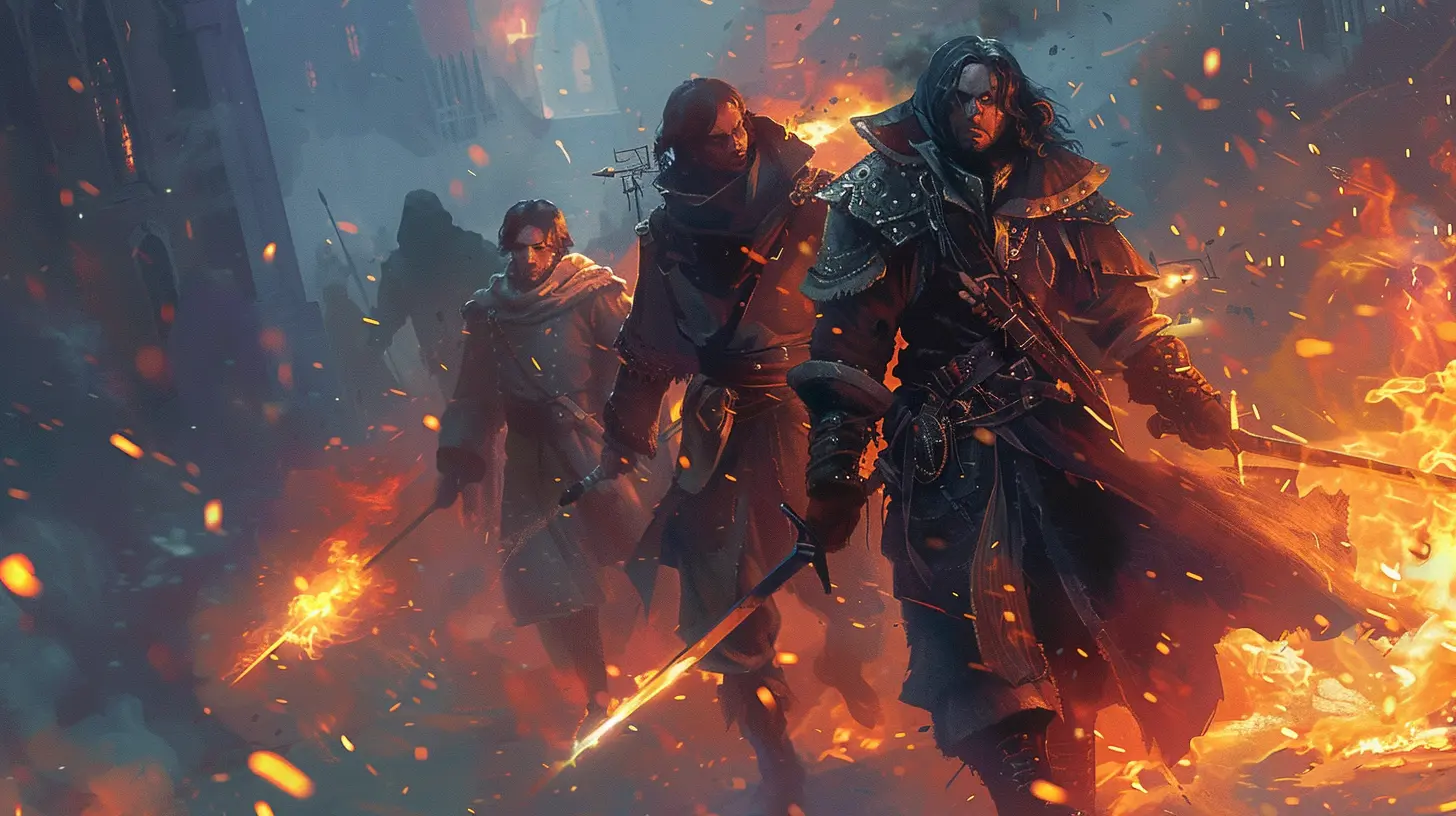
Why Conflict Happens in Cooperative Games
Before we dive into solutions, let’s address the elephant in the room. Why do cooperative games lead to conflict?Think about it. You’ve got a group of people, each with their own playstyles, personalities, and priorities. Toss in the pressure of time limits, dwindling resources, or an impending in-game disaster, and you’ve got a recipe for tension.
Here are a few common reasons conflicts pop up:
- Differing Playstyles: Some players like to plan every move like chess grandmasters, while others prefer to wing it and see what happens. It’s easy for these differences to clash.
- Communication Breakdowns: Ever have a teammate misunderstand your instructions or simply zone out during a critical moment? Poor communication is a top culprit.
- Alpha Player Syndrome: This happens when one player (usually unintentionally) dominates the game, telling everyone else what to do. It can make others feel frustrated or sidelined.
- High Stakes: Let’s be honest—when you’re one card away from losing or winning the game, the tension can feel real. Sometimes, that pressure boils over into conflict.
The key is to recognize these triggers and work as a team to address them. So, how exactly do you do that? Let’s break it down.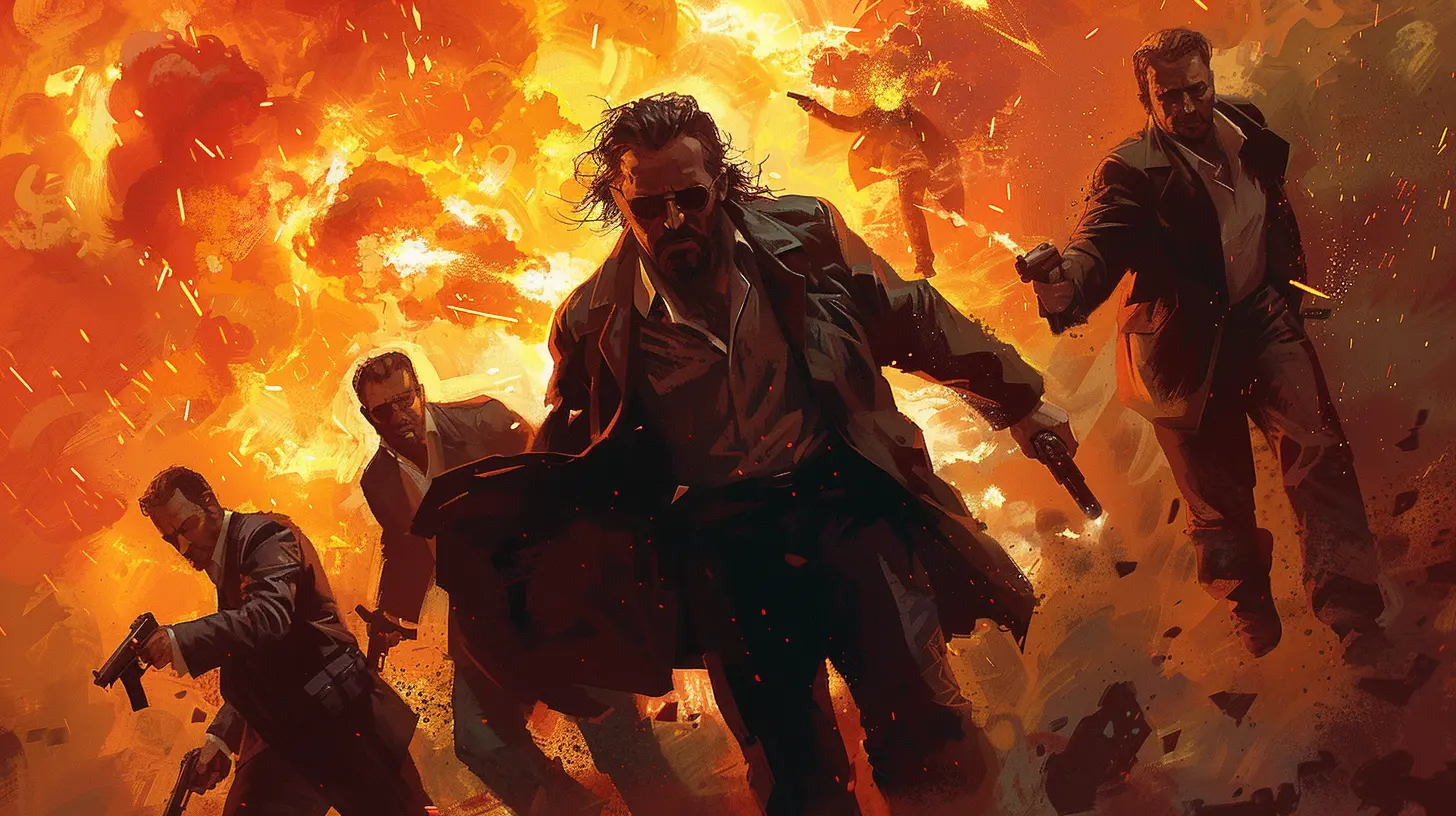
1. Start with a Pre-Game Talk
Ever heard the saying, "An ounce of prevention is worth a pound of cure?" It applies to gaming, too. One of the best ways to avoid conflict is to set the tone before you even start playing.Take a couple of minutes to talk as a group about how you want to play. Ask questions like:
- What’s our main goal—having fun or winning no matter what?
- Do we want to keep it casual or tryhard?
- How should we handle disagreements?
This conversation doesn’t have to be super formal or heavy. Think of it as setting the ground rules so everyone’s on the same page. A little prep can go a long way in minimizing misunderstandings later on.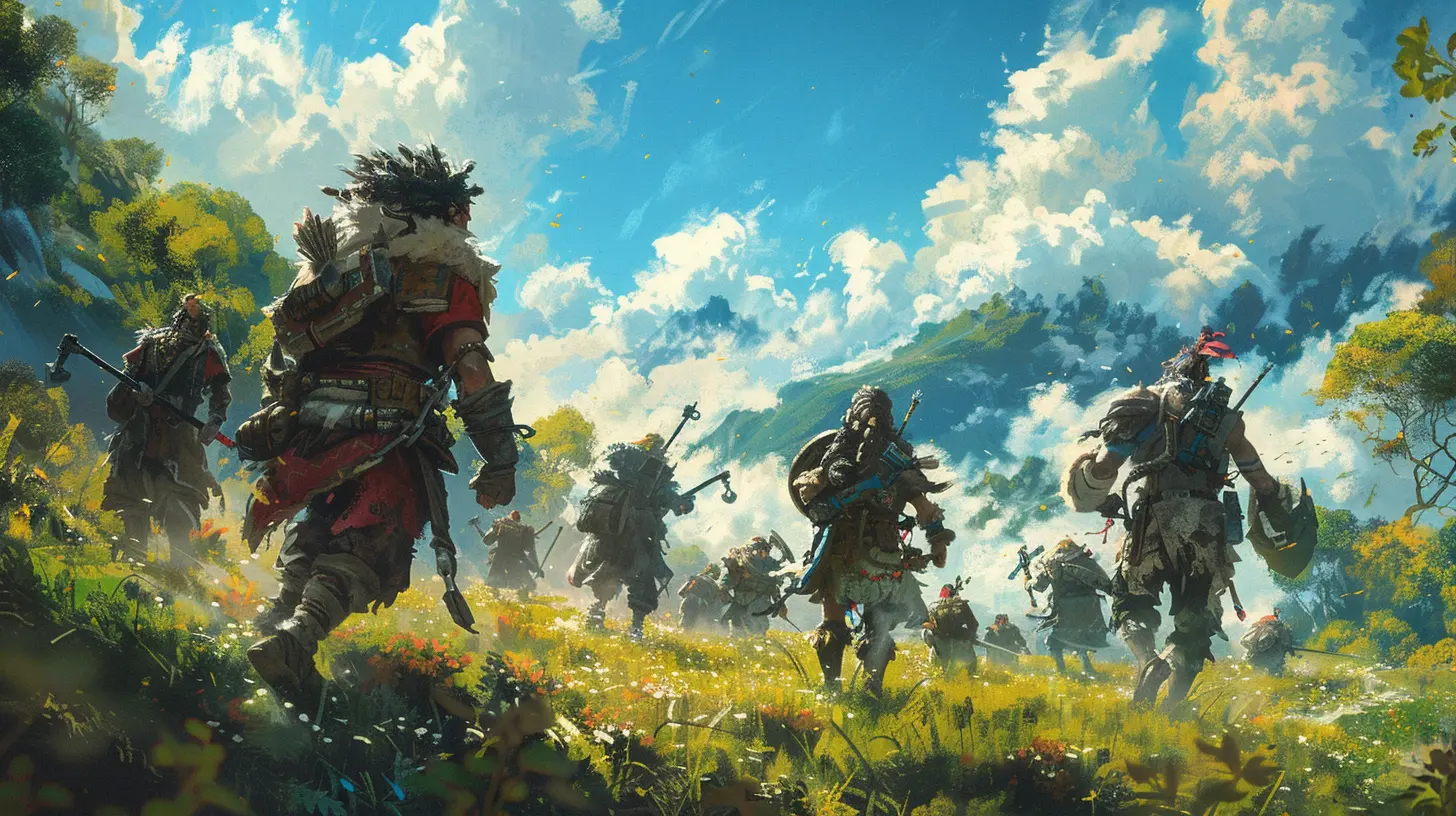
2. Practice Active Listening
When conflict arises, the instinctive reaction is usually to argue your point louder. But trust me, yelling “I told you so!” isn’t going to make your team any stronger.Instead, focus on active listening. This means actually paying attention to what your teammates are saying without interrupting. Nod, ask clarifying questions, and repeat back what you’ve heard. For example:
- Teammate: “I think we should split up to cover more ground.”
- You: “So, if I understand right, you’re saying splitting up would give us a better shot at finishing the mission?”
When people feel heard and understood, tensions tend to cool off. Plus, you might just discover that their idea isn’t so bad after all.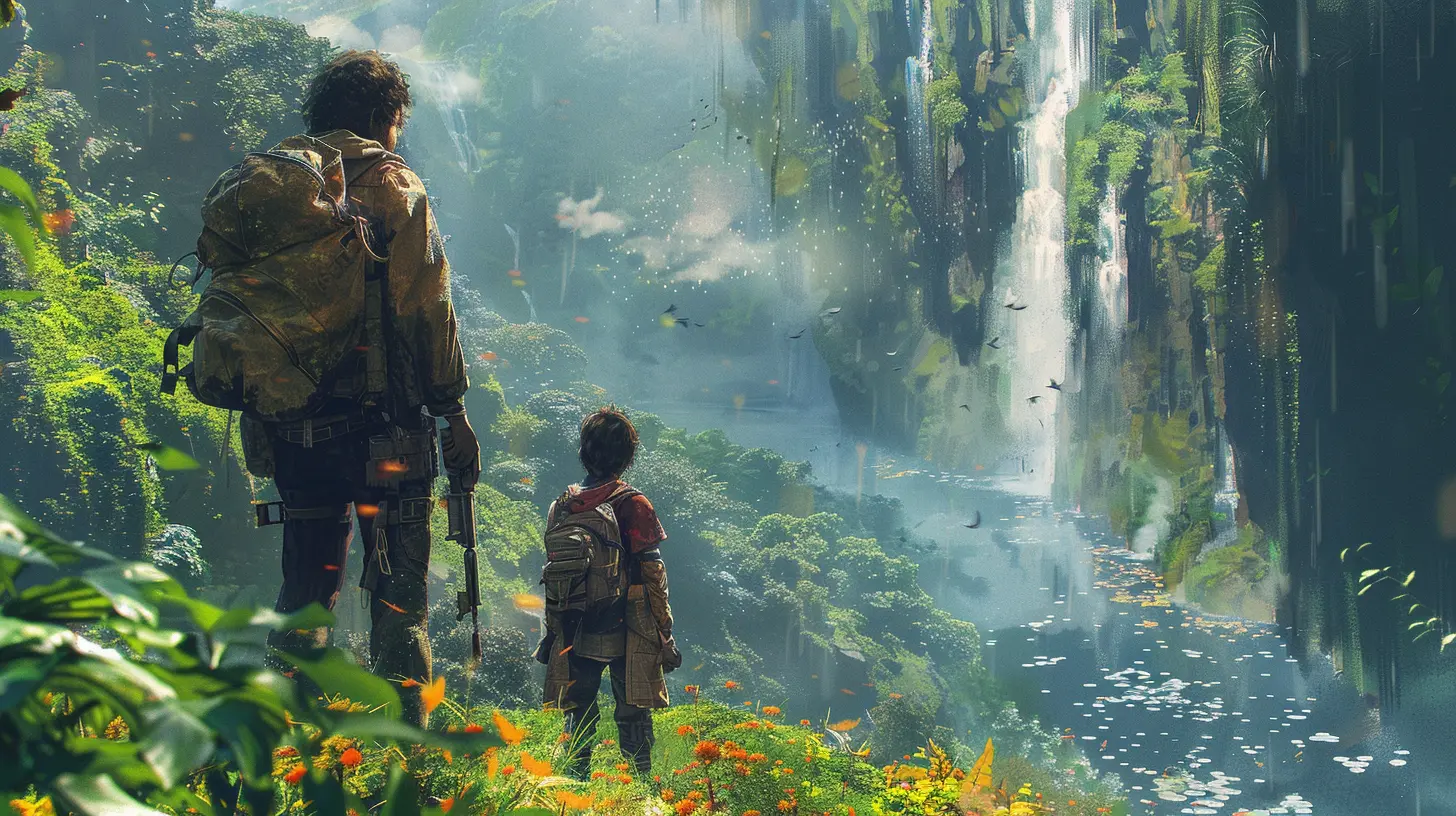
3. Embrace Compromise (It’s Not All About You)
Let’s be real—no one likes to give up their own ideas or strategies. But in cooperative games, flexibility is the name of the game. Sometimes you’ve got to put your ego aside and meet your teammates halfway.Think of teamwork like a potluck dinner. Everyone brings their own dish to the table, and you create something amazing together. Sure, maybe you’re not thrilled about their decision to bring potato salad, but hey—it’s part of the meal, and it works better when everyone contributes.
When conflicts arise, ask yourself, “Is this really worth digging my heels in about?” If not, try going along with someone else’s suggestion. Who knows? Their plan might surprise you.
4. Watch Out for Alpha Player Syndrome
We’ve all encountered the dreaded alpha player—the person who wants to micromanage everyone else's moves like they’re directing a Hollywood blockbuster. If you’re the alpha (be honest now), it’s time to dial it back. And if someone else is hogging the spotlight, tactfully call attention to it.Here’s a friendly way to address it without making things awkward:
- “Hey, you’ve got great ideas! How about we get [Teammate’s Name]’s perspective on this round too?”
This gently shifts the focus and reminds everyone that it’s a team game, not a one-person show.
5. Take Breaks When Needed
Let’s face it—sometimes emotions run high, and people need a breather. If the game is getting too intense or conflicts are escalating, take a step back.Pause the game, grab some snacks, or just chat about non-game stuff for a few minutes. A short break can help everyone reset, refocus, and come back with a more positive mindset.
Pro tip: If things are really heated, consider setting a “cool-off” timer. Five minutes of calm can work wonders.
6. Use Humor to Diffuse Tension
One of the fastest ways to defuse conflict? Laughter. A well-timed joke or silly comment can break the tension and remind everyone why you’re playing in the first place—to have fun!For example, if someone’s upset about losing a key resource, you could lighten the mood with something like, “Well, clearly the goblins were hungry for snacks, and they picked the tastiest one!”
Just make sure your humor is inclusive and doesn’t come across as mocking. The goal is to laugh with your teammates, not at them.
7. Focus on the Bigger Picture
At the end of the day, cooperative games are supposed to be enjoyable. If you’re spending more time arguing than playing, it’s time to reset your perspective. Winning or losing doesn’t matter as much as the memories you’re creating together.Ask yourself: “Will I remember this game for the win, or for the laughter and camaraderie I shared with my friends?” Spoiler alert: It’s the latter. Game night is about building connections, not tearing them down.
8. Debrief After the Game
Once the game is over, take a moment to reflect as a group. What went well? What could’ve been done differently? A positive, open discussion can help you avoid repeating conflicts in the future.Keep the focus on the collective “we” rather than pointing fingers. For example:
- “We really nailed that final boss fight!”
- “Next time, we should probably communicate better about our resource management.”
This wrap-up conversation helps strengthen bonds and sets the stage for smoother future gaming sessions.
Wrapping It Up
Conflict in cooperative games doesn’t have to ruin your night. In fact, with a little effort and understanding, it can be an opportunity to grow as a team. By setting expectations, listening actively, compromising, and keeping the mood light, you can handle disagreements like pros and keep the fun rolling.Remember, it’s not about who’s right or wrong. It’s about working together to overcome challenges. And hey, even if you lose the game, you’ve gained something even better—a stronger connection with your teammates.
So, grab your dice, shuffle those cards, and tackle your next adventure with these tips in mind. Game on!
all images in this post were generated using AI tools
Category:
Cooperative GamesAuthor:

Luke Baker
Discussion
rate this article
7 comments
Upton McCune
Excited to learn new teamwork strategies today!
March 31, 2025 at 4:55 PM

Luke Baker
Glad to hear that! Effective teamwork strategies can make a big difference in resolving conflicts. Enjoy the learning experience!
Amira McKibben
Conflict in cooperative games? Pfft, who needs teamwork when you can just let the chaos reign and watch your friends turn into rivals! Fun times, right?
March 12, 2025 at 3:28 PM

Luke Baker
While chaos can be entertaining, embracing teamwork and addressing conflicts constructively leads to a more rewarding and enjoyable gaming experience for everyone!
Gabriel Palmer
In the dance of play, where minds entwine, Harmony blooms when voices align. Embrace the clash, let laughter ignite, Through conflict’s embrace, find shared delight. Teamwork's magic, a bond shining bright.
March 4, 2025 at 5:10 PM

Luke Baker
Thank you for your beautiful reflections on the harmony found in cooperation! Embracing conflict can truly foster stronger teamwork and create meaningful connections.
Kestrel McMaster
Embrace communication and empathy; they are key to overcoming conflict and fostering teamwork.
February 28, 2025 at 5:58 AM

Luke Baker
Absolutely! Effective communication and empathy are essential for resolving conflicts and enhancing collaboration in cooperative games.
Harvey Scott
This article provides invaluable insights into navigating conflicts in cooperative games. It’s a reminder that open communication and understanding each player’s perspective can transform challenges into opportunities for growth. Implementing these strategies not only enhances gameplay but also strengthens friendships, making every session more enjoyable and constructive.
February 26, 2025 at 5:06 PM

Luke Baker
Thank you for your kind words! I'm glad you found the insights helpful for enhancing both gameplay and friendships.
Whitney McIlroy
Great insights on teamwork dynamics!
February 25, 2025 at 4:53 AM

Luke Baker
Thank you! I'm glad you found the insights valuable!
Rook McClure
Great tips! Embracing teamwork makes cooperative gaming so much more fun. Let’s turn those conflicts into epic victories together! 🎮✨
February 21, 2025 at 5:07 AM

Luke Baker
Thank you! Absolutely, embracing teamwork truly transforms the gaming experience. Here’s to turning challenges into triumphs together! 🎮✨
MORE POSTS
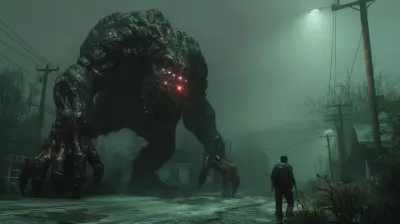
Surviving the Night: Dealing With Hostile Creatures in Games

The Impact of Crowd Presence in Live Esports Events
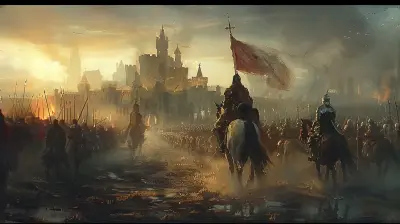
The Influence of Real History on Game Lore

The Role of Seasonal Updates in Sustaining Free-to-Play Games

Hidden Gems You Should Definitely Pre-Order Right Away
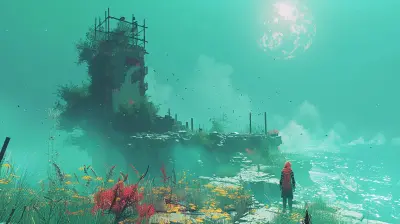
Exploring the Most Creative Mechanics in Indie Games